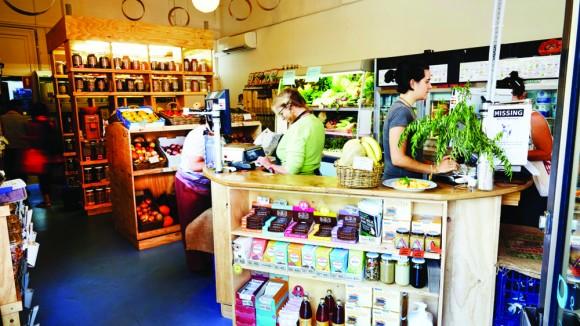
This article was originally published by UTS Business School. To view the original article please click here.
The demand for ethical, organic, biodynamic and environmentally sound products has grown dramatically in recent years. There are many players in the market, and one organisation making an impact is Alfalfa House.
Alfalfa House is a not-for-profit organic food cooperative that provides minimally packaged and processed, affordable organic food to its members and visitors.
The organisation recently sought the advice of postgraduate students from UTS Business School through a partnership between the Marketing Discipline Group and UTS Shopfront.
Alfalfa House wanted students to see how its pricing structure could be simplified to offer co-op members more affordable organics, without compromising the company’s guiding principles and values.
Students were asked to survey co-op members on the current pricing as well as compile a competitor analysis and make recommendations on how the co-op could differentiate itself.
Alfalfa House Treasurer Maurice Cabrera also sought separate recommendations on pricing produce, particularly its fruit and vegetable boxes and groceries.
Students in the subject Pricing and Revenue Management set about the challenge under the supervision of pricing strategist and subject coordinator John Burke.
“The project built like a jigsaw puzzle throughout the semester,” student Shane Tapley says.
“The deeper we went, the connections became clearer, and in the end the big picture was realised.”
Students found that the majority of Alfalfa House’s members thought the product quality was better than that of its competitors, and that the pricing strategy required adjustment.
"The deeper we went, the connections became clearer,
and in the end the big picture was realised.”
They recommended introducing a variety of new bundles and monitoring floor space returns, and provided a variety of pricing structures for different ranges to integrate the overall strategy.
They also suggested connecting with inactive members by increasing their organic and biodynamic certification process knowledge, reinforcing their “trusted” image among all members, and improving cost management.
Cabrera says Shopfront and the students performed a key piece of work for Alfalfa House.
“We have wasted little time in putting the recommendations into action.”
UTS Shopfront Program Manager Pauline O’Loughlin says it was great to see the students engaged with the clients right from the start.
“This is reflected in the feedback from students that emphasised the challenges and excitement of working with real clients on real life problems,” she says.
Burke says Alfalfa House is in a unique position, with a strong and loyal membership base.
“The majority of members are involved in supporting and developing the co-op, and the support of the Board and high number of responses to the students’ surveys assisted greatly in providing solid outcomes for the client.”
This member-involvement is part of Alfalfa House’s “value” concept, combined with maintaining high-quality organic produce, Burke says.
“Pricing products correctly is vital for any organisation. Developing a pricing strategy involves various factors including understanding the client, competitors, costs and customer structure. Many organisations fail to understand the power of pricing.
“Determining the correct price requires a great deal of effort. Every organisation should take time to review and improve their pricing strategy. If done correctly, this can boost market share, customer and staff satisfaction and loyalty, and ultimately the success of the business.”
Photo: Alfalfa House (supplied)

